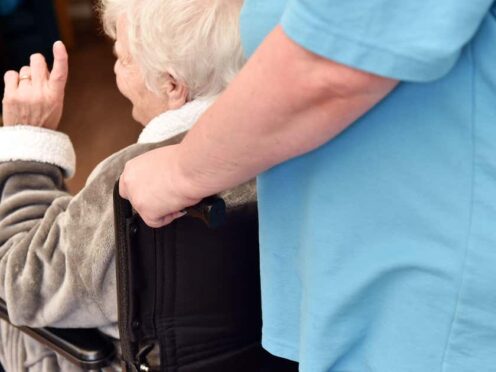The next government must finally “grasp the nettle” and deliver lasting social care reform, the new president of an adult social services organisation is to say.
Melanie Williams will call for politicians to be put “on the spot” in the forthcoming general election campaign in order to focus attention on adult social care.
Both the social care minister Helen Whately and shadow social care minister Andrew Gwynne are due to speak at the Association of Directors of Adult Social Services (Adass) spring seminar on Thursday.

In her speech to the gathering for the first time as president, Ms Williams will say her sector has endured “a decade of disappointment” since the 2014 Care Act.
Addressing day two of the three-day seminar, she will say: “The Care Act celebrates its 10th anniversary this year.
“I do remember the mood from 10 years ago very differently. We shared great optimism about the Care Act.
“It was so exciting to bring together the vast and complicated system of welfare policy and legislation that we had but our excitement went beyond that. We felt we had a new dawn of equality and social justice for people.
“When it comes to policy, funding and cross-Government action, we have had a decade of disappointment since. We have rightly come to the conclusion that we have to make our own weather and that we can have real impact.”
Referring to Adass research published in November, she will brand it “indefensible” for there to be almost half a million people waiting for care or to have their needs assessed.
Ms Williams is expected to say the sector is used to politicians making promises about reforming social care and then not fulfilling those pledges.
She will say the public’s perception of social care must change, putting it in the same bracket as the NHS and how important that is to people.
She will say: “To build sustained political backing to transform care and support in England, we not only need the trust of decision-makers in Government and their confidence that the solutions we’re proposing will work. We need to change the way the public thinks about social care.
“So that they see it as important to them and their families’ wellbeing as the NHS, even if they don’t need support right now.”
Ahead of an election, she will say: “We look to next government finally to grasp the nettle of lasting reform.
“We must use every opportunity presented by the coming general election campaign to put the cause of adult social care in the spotlight and our politicians on the spot.”
Ms Williams, who began her career through part-time care work aged 17, said she had “no idea that I was shaping a life-long career in health and social care”.
Too few people who enter into the adult social care workforce are “encouraged and enabled to build a career”, she will say.
“This is why we desperately need a new deal for the care workforce – not just fair pay but a real career structure and meaningful incentives for young people to come into care and support work from school, college or university and to stay,” she will add.
Public satisfaction with social care services dropped to a new low last year according to a survey published in March.
The findings from the British Social Attitudes survey, published by the Nuffield Trust and The King’s Fund, suggested the leading reason for dissatisfaction was inadequate pay, working conditions and training for social care workers, followed by people not getting the social care they need, and not enough support for unpaid carers.
The Department of Health and Social Care has previously said it has made available up to £8.6 billion in funding over two financial years to support adult social care and discharge, is investing up to £700 million on things such as harnessing technology and adapting people’s homes, and is reforming social care careers with a new clear career path and an new accredited qualification “to give the profession the recognition it rightly deserves”.
